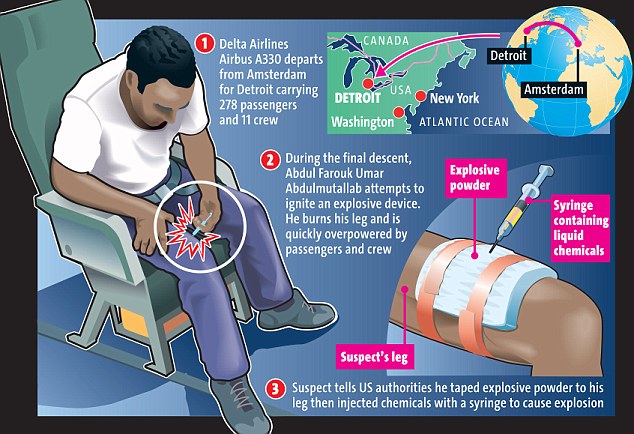Alex Constantine - October 19, 2010
Also see: "Did FBI Agent Provocateur Inspire Bronx Bomb Plot?"
Questions loom about perjury
Newburgh 4 judge 'skeptical'
By Doyle Murphy
Times Herald-Record | September 22, 2010
 NEW YORK — James Cromitie dodged an FBI informant for weeks in early 2009, but he was ready to talk again by April.
NEW YORK — James Cromitie dodged an FBI informant for weeks in early 2009, but he was ready to talk again by April.
Cromitie told informant Shahed Hussain he'd been working in North Carolina but he'd had it with that job.
"I took one baseball bat and damn near tore up the whole place," Cromitie boasted. "Yes I did. Yeah, I've been arrested, you know twice."
It wasn't true. In reality, Cromitie had never even left Newburgh. This is a critical point for defense attorneys in the federal case against Cromitie and three other Newburgh men. The four are accused of trying to shoot down planes at Stewart Air National Guard Base and blow up a synagogue and Jewish center in the Bronx.
Cromitie's attorney Vincent Briccetti said the fact that his client avoided Hussain shows he wasn't the instigator of any terrorist plans. Cromitie was out of money by early April, Briccetti has said. He needed his rich friend Hussain and, Briccetti claimed, the informant knew how to set the hook.
"I have to try to make some money, brother," Cromitie told Hussain in a secretly recorded phone conversation.
"I told you I can make you $250,000, but you don't want it brother," Hussain said. "What can I tell you?"
Briccetti has tried to show money was the lure that drew Cromitie to Hussain in the first place and it was money that finally brought him back when he began to waiver.
Hussain testified that "$250,000" was actually a code word for the operation and didn't mean he was going to pay Cromitie that sum of money. He later admitted he never told anyone, including Cromitie, that he had designated it as a code word.
"That's a pretty good code word," Briccetti said. "No one's going to guess that one, right?"
After the jury left the courtroom, Mark Gombiner, lawyer for defendant Onta Williams, said Hussain has told one lie after another during his more than three weeks on the witness stand. He asked U.S. District Judge Colleen McMahon to force prosecutors to investigate possible perjury and turn over any supporting information.
McMahon said she was "suspicious and skeptical" of many of Hussain's claims, but it was up to the jury to evaluate Hussain's credibility.
"I can tell you that I am skeptical of some of the things he said, but I am not the trier of facts," McMahon said.
Gombiner pointed to a similar case in which convictions were reversed after a perjury hearing involving a key witness. McMahon agreed there were parallels to the Newburgh case but said there would be no perjury hearings before the trial's end.
http://www.recordonline.com/apps/pbcs.dll/article?AID=/20100922/NEWS/9220340
Cromitie a patsy, Newburgh 4 defense says
 The camera episode and the picture it paints of Cromitie as a pathetic, low-rent hustler is exactly the image defense attorneys have tried to show jurors in the trial of the Newburgh Four. Prosecutors have painted Cromitie as the mastermind behind a failed plot in May 2009 to shoot down planes at Stewart Air National Guard Base and blow up a synagogue and Jewish center in the Bronx. Attorneys for the men have built an entrapment defense around the image of their clients as poor, unsophisticated men who were more interested in the prospect of cash than religious extremism or terrorism.
The camera episode and the picture it paints of Cromitie as a pathetic, low-rent hustler is exactly the image defense attorneys have tried to show jurors in the trial of the Newburgh Four. Prosecutors have painted Cromitie as the mastermind behind a failed plot in May 2009 to shoot down planes at Stewart Air National Guard Base and blow up a synagogue and Jewish center in the Bronx. Attorneys for the men have built an entrapment defense around the image of their clients as poor, unsophisticated men who were more interested in the prospect of cash than religious extremism or terrorism.
Defense attorney Vincent Briccetti called two witnesses on Wednesday to reinforce the idea: The neighbor and Cromitie's old boss at Walmart, who had refused to give him his job back after he was fired for not showing up to work.
With no job and no money, Briccetti has argued, Cromitie saw few other options than to speak to the man who was always driving nice cars and buying lunch — the informant.
Assistant U.S. Attorney Adam Hickey said the case boils down to a central point: The informant offered the men an opportunity to do something terrible and the men took it.
"Not everyone would have said yes," Hickey said.
The defense rested its case shortly after Sanchez left the stand on Wednesday. The trial began on Aug. 24, and closing arguments are set for Monday and Tuesday.
The jury could begin deliberations on Wednesday.
dmurphy@th-record.com
http://www.recordonline.com/apps/pbcs.dll/article?AID=/20101001/NEWS/10010393/-1/SITEMAP








